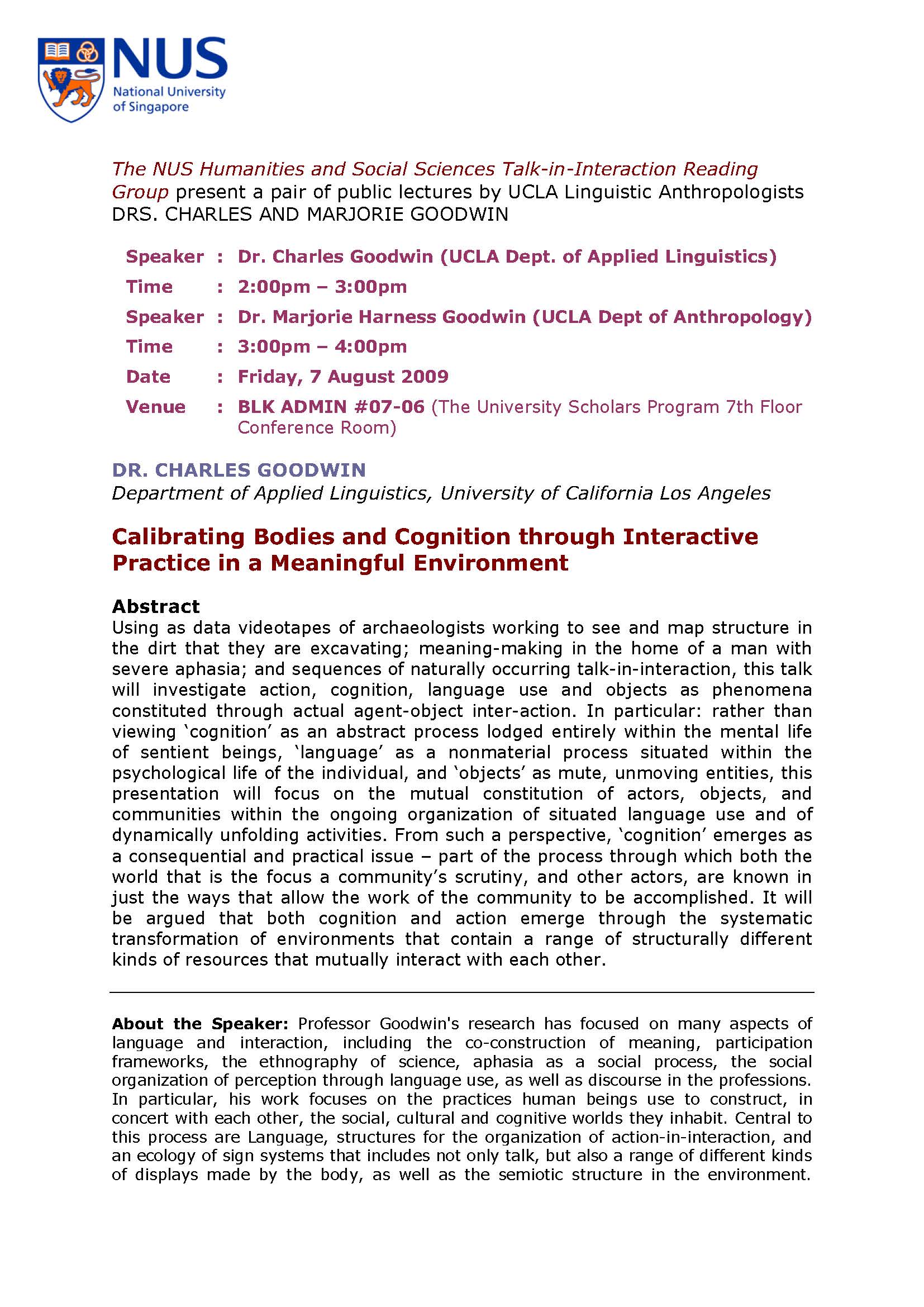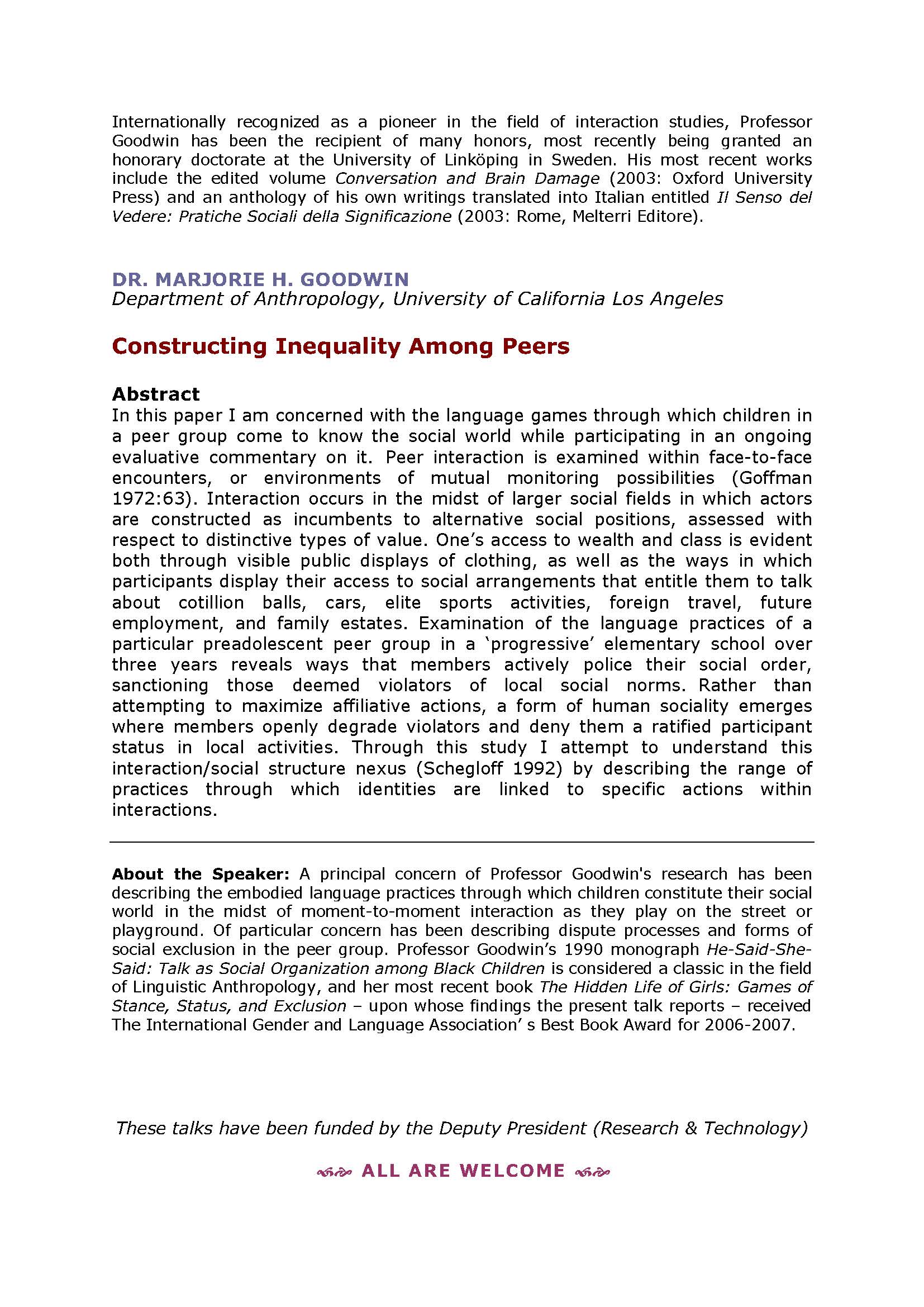Constructing Inequality Among Peers
Abstract
In this paper I am concerned with the language games through which children in a peer group come to know the social world while participating in an ongoing evaluative commentary on it. Peer interaction is examined within face-to-face encounters, or environments of mutual monitoring possibilities (Goffman 1972:63). Interaction occurs in the midst of larger social fields in which actors are constructed as incumbents to alternative social positions, assessed with respect to distinctive types of value. One’s access to wealth and class is evident both through visible public displays of clothing, as well as the ways in which participants display their access to social arrangements that entitle them to talk about cotillion balls, cars, elite sports activities, foreign travel, future employment, and family estates. Examination of the language practices of a particular preadolescent peer group in a ‘progressive’ elementary school over three years reveals ways that members actively police their social order, sanctioning those deemed violators of local social norms. Rather than attempting to maximize affiliative actions, a form of human sociality emerges where members openly degrade violators and deny them a ratified participant status in local activities. Through this study I attempt to understand this interaction/social structure nexus (Schegloff 1992) by describing the range of practices through which identities are linked to specific actions within interactions.
About the Speaker
A principal concern of Professor Goodwin's research has been describing the embodied language practices through which children constitute their social world in the midst of moment-to-moment interaction as they play on the street or playground. Of particular concern has been describing dispute processes and forms of social exclusion in the peer group. Professor Goodwin’s 1990 monograph He-Said-She-Said: Talk as Social Organization among Black Children is considered a classic in the field of Linguistic Anthropology, and her most recent book The Hidden Life of Girls: Games of Stance, Status, and Exclusion – upon whose findings the present talk reports – received The International Gender and Language Association’ s Best Book Award for 2006-2007.



